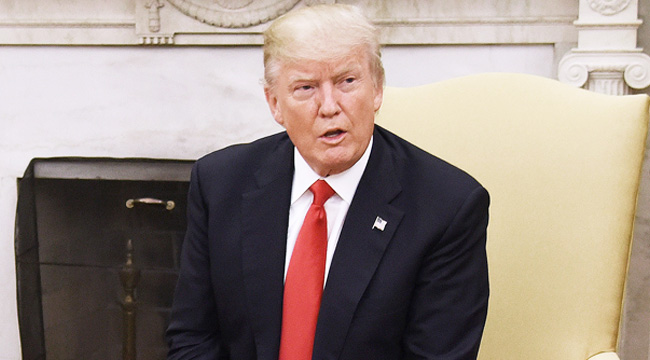
President Trump’s blurred lines between his political and business careers have created numerous concerns on Capitol Hill and across the country. Now, a new lawsuit backed by 200 Congressional Democrats is focused on not only on foreign payments to the Trump Organization, but also on his tax returns, which could contain valuable information about where Trump’s money comes from overseas.
On previous occasions, such lawsuit attempts have been struck down by the Justice Department on the grounds that the emoluments clause of the constitution doesn’t apply to standard income like that which the Trump Organization generates off hotels, golf courses, resorts, and other real estate holdings. However, the Guardian points out that not only did President Trump not divest himself of the Trump Organization as promised, the company has continued to generate income from significant foreign players in ways that could be problematic.
For example, patents in China and lobbying fees in Saudi Arabia have been filed and earned since the inauguration, even as President Trump wades into relationships with each country that would be politically complex even without the added detail of his personal financial interests. Since President Trump pulled the United States out of the Paris Climate Accord, China suddenly stands to have greater worldwide environmental influence and has been testing its clout on the Korean Peninsula and in the South China Sea, too.
At the same time, the Trump brand is hugely popular in China, and he’s had to battle for his trademarks there before. Eyebrows were raised in March when China swiftly granted almost 40 new patents for everything from the Trump Organization’s typical luxury offerings like spas, golf clubs, and hotels to private bodyguard and escort services.
The Associated Press spoke to a Beijing law firm that has worked with the Trump Organization, and they said the patents were filed defensively. Whether or not the Trump Organization was simply trying to protect its brand and prevent other entities from horning in on its niche, it’s all made more complicated by the association between the President of the United States and his eponymous holdings.
Just before Trump’s first foreign tour, which included a trip to Saudi Arabia, the Saudi Interior Ministry hired Sonoran Policy Group of Arizona, a lobbying firm with distinct ties to President Trump. The company’s president is none other than Stuart Jolly, who worked as the political director of a pro-Trump political-action committee before he started at Sonoran in December. Jolly isn’t the only Trump-connected employee at the firm, either—Trump campaign’s Michigan chief of staff Jacob Daniels, works there now, too— but he might be the one with the shortest reach to the President.
Back in January, just a month into Jolly’s tenure at Sonoran, the firm’s owner Robert Stryk bragged in an interview with the New Zealand Herald about Jolly’s easy access to Trump. “I text Stuart Jolly and say we need to get Mr. Trump to talk to the Prime Minister of New Zealand. Within 30 minutes this man got us the private cellphone of Mr. Trump.” It might not have been a current number, and Stryk didn’t comment on the results of the call, but the anecdote highlights that Trump’s long-standing relationships in the private sector aren’t so easily left behind.
Examples like these are the impetuous for not only the Congressional Democrats’ suit, which should be filed Wednesday morning in the U.S. district court for the District of Columbia, but another suit filed by D.C. Attorney General Karl Racine and Maryland Attorney General Brian Frosh earlier this week. Republican members of Congress will also be invited to join the Congressional Democrats’ as plaintiffs, according to Senator Richard Blumenthal, one of the key players behind the suit.
What might make this case more successful than previous suits pertaining to Trump’s conflicts of interest is the argument that legally foreign gifts and payments can only be approved by Congress. “The framers gave Congress a unique role, a unique right and responsibility,” said Blumenthal.
It will be up to the court to decide how this applies to an unprecedented situation. As Democrat representative John Conyers pointed out, this case is the “greatest number of congressional plaintiffs on any lawsuit against a president.” No matter the outcome, it’s already made history.
(Via NBC, CNN & The Guardian)
